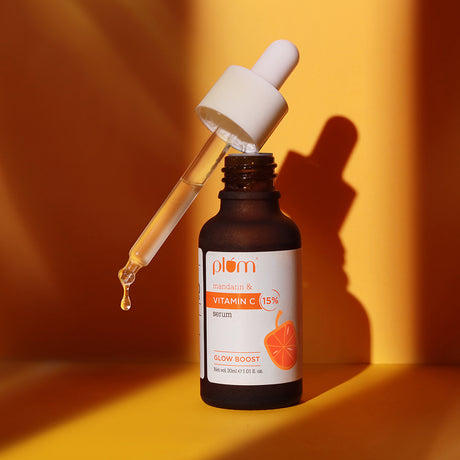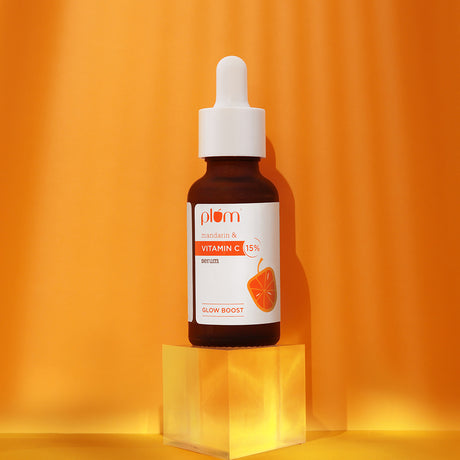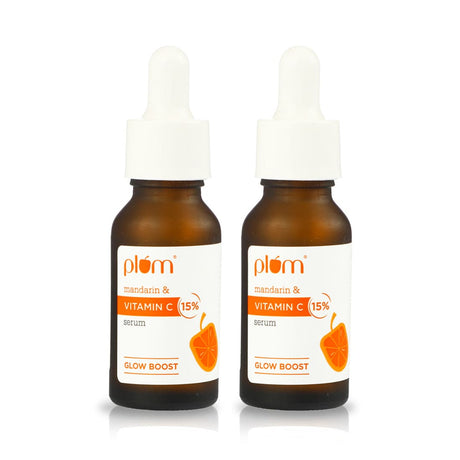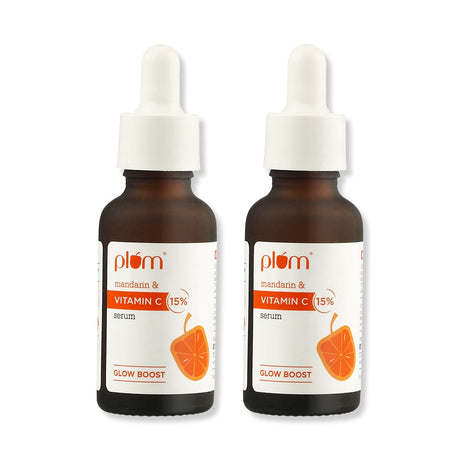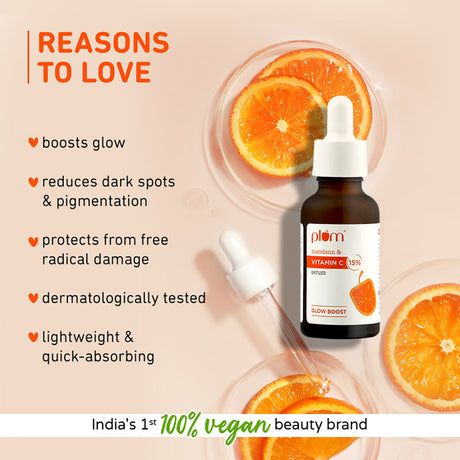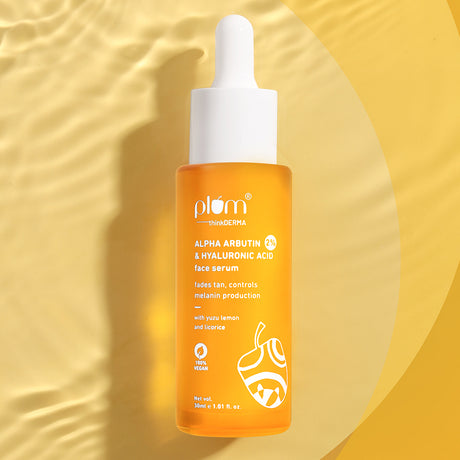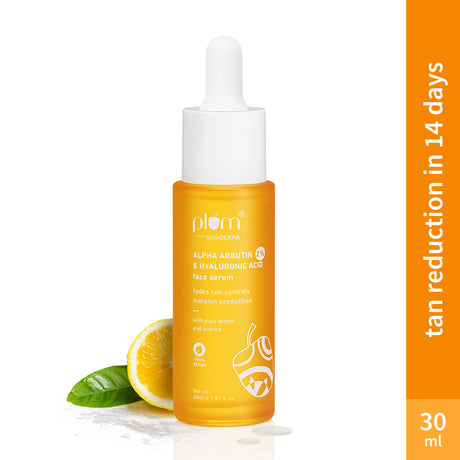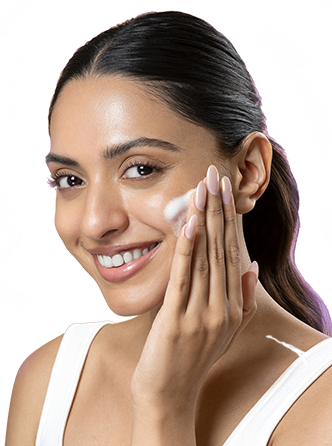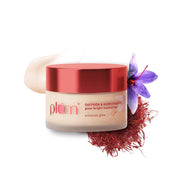
IN THIS ARTICLE
Dark spots can feel stubborn and frustrating; one week they seem to fade, the next they look darker under sunlight. Often, you end up trying all sorts of products to get rid of them, only to get disappointed.
The truth? They aren’t permanent, but they do need smart skincare, consistency, and the right actives.
Whether you've just noticed post-pimple marks or you’ve been dealing with pigmentation for months, here’s your complete,science-backed guide to clearing black spots on the face safely and effectively.
What are dark spots?
Dark spots are areas of excess pigment (melanin) on the skin. They appear as light brown, brown, or deeper brown patches. While they are not harmful to the skin (unless it is growing, painful, or sensitive), they can affect confidence and skin texture.
Types of hyperpigmentation
To get rid of dark spots effectively, you need to understand the different types of dark spots and why they occur.
| Type | What it looks like | Common cause |
| Post-inflammatory Hyperpigmentation (PIH) | Black spots after acne, injury | Acne picking, skin irritation, inflammation, and sensitive skin |
| Sun-spots (Solar Lentigines) | Flat brown spots on sun-exposed areas | UV damage, sunburn |
| Melasma | Symmetrical brown patches | Hormones, sun exposure, medication, and age |
| Post-inflammatory Erythema | Pink/red marks after acne (not pigment but often mistaken) |
Inflammation in fair skin tones |
Before you pick a course of action for your dark spots, ensure to identify which one you have and then act accordingly.
Causes of dark spots
While the causes of dark spots can differ in their types and age, here are some common causes of dark spots:
-
Stubborn acne & popping pimples
-
Harsh UV exposure or longer duration of sun exposure without sunscreen
-
Hormonal changes like pregnancy, menopause
-
Harsh scrubs or irritation due to wrong product use or overuse of actives.
-
Heat exposure
-
Certain medications & hormone therapy
Key point: Sun exposure is the primary cause of dark spots. Which is why you must never skip sunscreen and keep your skin and head covered while venturing out.
How to get rid of dark spots on the face
Here’s the science-backed skincare routine to treat dark spots on the face and prevent them from re-appearing:
Step 1: Start with gentle cleansing
Use a mild, hydrating face wash infused with brightening ingredients.
Step 2: Apply targeted actives (choose based on skin type)
Face serums infused with targeted active ingredients will help fade your dark spots. Depending on your skin type, here are the ingredients you can look for in your face serum.
| Ingredient | What it does | Best for |
| Vitamin C | Fades dullness, reduces melanin, enhances glow | Early pigmentation |
| Niacinamide | Reduces blemishes, brightens skin | All skin types |
| Alpha Arbutin | Fades tan and pigmentation gradually | All skin types |
| Retinol | Speeds cell turnover | Stubborn pigmentation |
| AHA/BHA (Glycolic/Lactic/Salicylic) | Exfoliates, clears marks |
Texture + dark spots |
| Azelaic Acid | Calms acne + fades marks | Acne-prone & sensitive skin |
| Kojic Acid | Stops melanin formation | Deep pigmentation |
Patch test if you are new to the world of active ingredients and start with a lower concentration and use it as recommended. Use only 2-3 drops and layer properly. Do not mix strong actives like vitamin C and retinol in the same routine. Read more on how to layer two serums here.
Step 3: Hydrate & repair barrier
A well-hydrated skin glows from within. Moisturise your skin well with ingredients like ceramides, hyaluronic acid, and peptides.
Step 4: Daily SPF is non-negotiable
If you don’t use sunscreen daily, everything else becomes useless. Choose a broad-spectrum sunscreen with SPF 30-50.
Skincare routine for treating dark spots
Morning routine
-
Gentle cleanser
-
Lightweight moisturizer
-
Sunscreen
Night routine
-
Cleanser
-
Exfoliant (2-3×/week) OR retinol (alternate nights)
-
Alpha arbutin / Niacinamide serum
-
Barrier-repair moisturizer
How long does it take for dark spots to fade?
If you have mild marks and spots, with a consistent routine, you can see results in 4-6 weeks. However, pigmentation caused due to with stubborn acne can take a longer time, depending on the severity of the condition.
Additionally, for hormonal melasma, you might have to wait 3-6 months to see gradual results.
Additional treatments for Dark Spots.
If the above-mentioned steps and solutions are not able to give you the desired results, you might need to resort to dermatologist-approved chemical treatment. You can opt for
-
Chemical peels
-
Laser (Q-switch)
-
Prescription creams (Kojic/Retinoids/Azelaic combos)
Remember that using too many DIYs on your skin can make hyperpigmentation worse.
FAQs
What to use for dark spots on face?
Use products with Vitamin C, Alpha Arbutin, Niacinamide and Retinol ( after age 25).
What are the best ways to remove dark spots on the face?
Regular use of SPF and actives like Vitamin C, AHA, Niacinamide, Retinol, and Arbutin can help.
How to remove pigmentation permanently?
To remove pigmentation permanently, you need to follow a dedicated skincare routine and maintain it throughout, as sun, stress, and hormones can bring it back.
How to remove dark spots caused by pimples?
Use products with Niacinamide, Azelaic acid, and Salicylic acid, and always apply sunscreen.
Fastest way to remove pigmentation?
The fastest way to remove pigmentation is using a chemical exfoliation, followed by a Vitamin C moisturizer and sunscreen. If you are above 25 years of age, you can also add Retinol for stubborn spots.
Does potato remove dark spots?
Catecholase enzyme in potatoes may slightly lighten your dark spots, but they are not a permanent or reliable treatment.



